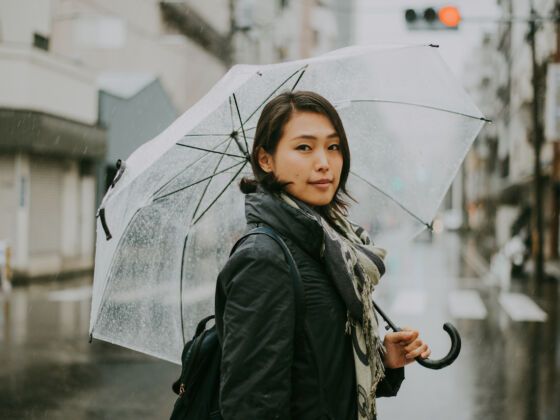Travelers returning from a journey always face one last challenge: being forced to tell others about it. People come to expect stories of wonder, personal evolution, enlightenment. With long or intense trips, they’re right to expect these things. But it’s incredibly hard to convey exactly what effect a trip has had on you, and in what way your understanding of the world has changed.

I’ve struggled with this situation more than once, after facetiously replying to questions about my time abroad with, “It completely changed my life, shaped who I am today, taught me the truth about the world, and so on.” Although those words were said in jest, I know they’re all true, although I couldn’t tell you exactly how. My best friend from home, minutes after seeing me for the first time in over 12 months, commented that I looked “more at peace,” which was a powerful lead in my personal quest for understanding what exactly had changed.
My current hypothesis: One of the many positives of traveling (especially solo travel) is that it brings you the patience to make the best of terrible situations. Yet “bring” is not a strong enough word here — it forces you to do so, or else your life will become very miserable indeed. Whether it’s a missed transport connection, inclement weather, or ultimately disappointing destinations, travel will invariably bring hardship into your life in one way or another. Your task is to respond to it, and given that your worldview is far more mutable than the surroundings, you generally have to come to terms with it on your own.
Viktor Frankl, a psychologist and survivor of Auschwitz, writes that, “When we are no longer able to change a situation, we are challenged to change ourselves.” While the average traveler’s circumstances are nothing compared to a Nazi concentration camp, they’re capable of causing suffering in their own way. The traveler must decide what to do with that suffering. The situation is out of their hands and can’t be changed, so they must change something within themselves instead.
I’ve experienced all of the above and more while on the road. The first few missed transport connections are rough and may have caused a few tears of frustration, but after that you come to accept it as a fact of travel. Generally, I was the only person to blame, and unsurprisingly, I was also the only person who had to deal with the consequences. After a while, I adopted the perspective that an extra 10 hours (or sometimes days) of transit is nothing in the big scheme of things, and as a solo backpacker with all my possessions on my back, I could make the most out of almost any inconvenience. From the chain-smoking car mates in a Bulgarian train who ruined my ability to sleep, to less-than-stellar Couchsurfing setups (in Russia I was given a pile of fur coats to sleep on), I got to the point where I would turn it over in my mind once, then shrug and figure out how to make it work.
And then, having had to deal with more consequential issues — ‘where am I going to sleep tonight,’ or ‘how the heck am I going to be in this country by tomorrow’ — makes all the trivialities of life back home much easier to accept. There’s very little that day-to-day life can throw at me that compares to trials endured on the road. But there remain many inconveniences one must learn to deal with, from unexpected chores to broken bike chains to heavy traffic. My time on the road allows me to approach these normally frustrating obstacles with a more peaceful mindset.
So perhaps that’s what my wanderings have taught me — the ability to cope with a less-than-perfect reality. It’s a valuable tool, considering life will always be less than perfect. Your travels affect the lens through which you view the world, which in turn defines your reality. GK Chesterton once noted, “An adventure is only an inconvenience rightly considered.” The suffering you bear in order to rectify some disconsolate situation could instead be the price you pay for a new, completely unexpected opportunity. And when you’re on the road, every new opportunity can be fruitful.
Take the time I was traveling in Bosnia. I’d heard it was easy to hitchhike in the country, and thus eschewed a 4-hour bus trip from Mostar to Sarajevo in favor of hitching. However, after 5 hours of sitting in the blazing sun with my thumb out and no takers, I finally gave up and slunk onto another bus, thinking I’d lost my chance to interact with ‘real Bosnians.’ Yet at the very next bus stop a beautiful, eloquent young woman sat next to me, and was not only willing to chat with me during the ride, but also showed me hidden spots in Sarajevo over the next 2 days. I received countless invaluable insights about the country from her — who knows if my imagined ‘real Bosnian’ driver would have been as accommodating?
All those hours by the side of the highway don’t seem so bad anymore — in fact, if I was assured the same return on investment, you’d find me camping out next to the next highway on-ramp I could find. Suffering is present in inconvenience, which means it too is an ingredient for adventure. It’s up to you to consider it that way. The ability to do so may be the most valuable thing I’ve gained from travel.